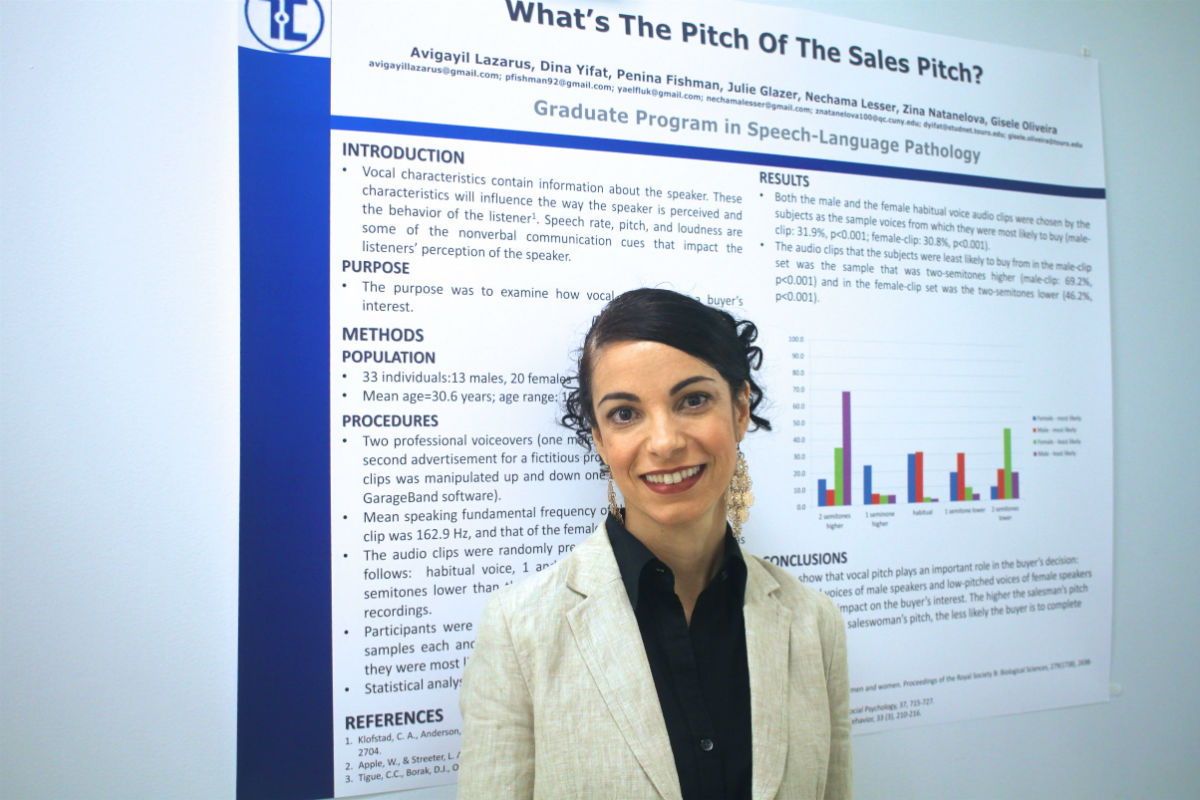Not Too High, Not Too Low May Be Just Right for Sales Pitch
School of Health Sciences Speech Language Pathology Professor Presents Her Research at Touro-Wide Research Day

Ads featuring high-pitched voiceovers tend to turn off potential buyers, according to new research presented here in a poster session at Touro College Research Day. Organized by the Touro Research Collaborative, Touro College Research Day is being held from 11:30 a.m. to 5 p.m. on Tuesday, April 28, at the Touro College of Osteopathic Medicine and the Touro College of Pharmacy campus at 230 West 125th Street in Harlem.
“Vocal pitch plays an important role in the buyer’s decision: high-pitched voices have a negative impact on the buyer’s interest,” says Gisele Oliveira, PhD, who led the new study and is an assistant professor and voice specialist at Touro's Graduate Program in Speech-Language Pathology. “The higher the salesperson’s pitch, the less likely the buyer is to complete the purchase.”
The tone and quality of a person's voice in a sales pitch matters, according to Dr. Oliveira. “All these features play a role in how the listener will take home your message.”
To investigate whether vocal pitch might affect buyers' interest, Dr. Oliveira and her colleagues hired two voice-over professionals—one male, one female—to record a 40-second ad for a fictitious product. Using Garage Band software, the researchers created five clips for each voice: habitual pitch, one and two semitones higher, and one and two semitones lower.
Thirty-three study participants, including 13 males and 20 females, listened to the two sets of five samples each. They were asked to choose the best and worst sales pitches samples from each set of voice clips. Study participants most often chose the normally-pitched voices as the best sales pitch (33.3% picked for the male-voice clip, 39.4% the female-voice clip), and they were most likely to rate the highest-pitched sales pitches as the least appealing (51.5% chose the highest-pitched male voice, 72.7% picked the highest-pitched female voice).
“The subjects chose the habitual pitch as being the one they would buy the product from,” Dr. Oliveira said. “The high pitch was the one they liked the least; we concluded that a high-pitched voice has a negative impact on the buyer’s interest.”
The Touro Research Collaborative, a dedicated group of faculty who pursue research in the medical and health sciences, founded the Research Day—now in its fourth year—to foster collaborations among faculty and students.
Media Contact
Elisheva Schlam
Executive Director of Communications
646-565-6420
elisheva.schlam@touro.edu

